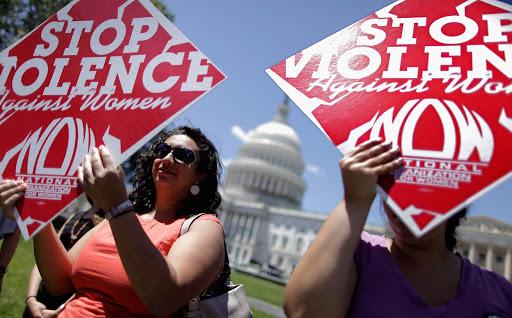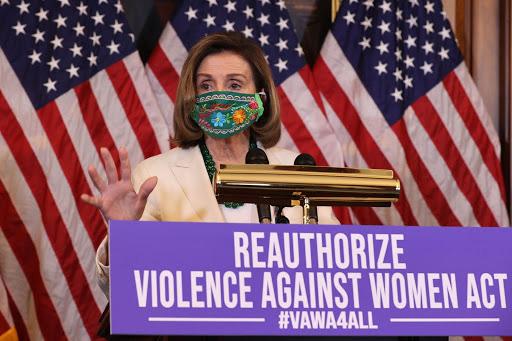
9 minute read
Album Review
Lil Nas X7Album Review by Mekhi Randle
With the release of Lil Nas X’s controversial new single “(MONTERO) Call Me By Your Name,” I wanted to dive back into the artist’s first 2019 extended project titled “7.” The kickstart of Montero Hill’s career catapulted from his record-breaking, chart-topping, cultural shifting song “Old Town Road,” featuring Billy Ray Cyrus. From there, he released this EP, and it’s not just what you’d expect: country. It’s actually alternative and features elements of rap, country, rock, pop, and R&B.
Advertisement
1. Old Town Road (feat. Billy Ray Cyrus) - Old Town Road—the country-rap song that almost everyone knows. This song had a fair run in my opinion. Listening to this song now I would have to say that it’s not as good as I remembered. The song features Billy Ray Cyrus who, in my opinion, holds down the song. The song reminds me of a very specific time in 2019 but also reminds me of children listening to this song: who ultimately helped Lil Nas X rise to the top. Not something I’d listen to again.
2. Panini - Panini, his second most successful song, following Old Town Road, and personally this is at the top of my favorite songs on this project. The song embarks on a journey of Lil Nas X’s come up, how a fan who once was a huge fan isn’t anymore. I like the song because it has a replay factor that many songs don’t have. The music video for this song is also super cool.
3. F9mily (You & Me) [feat. Travis Barker] - F9mily (You & Me) is one of my favorite songs on this extended project. Surprisingly, this is the first rock-esque song I ever listened to, and it reminds me of Disney movies or a theme song. This would fit in a scene where the main character would be getting ready for
when they head off to school. This song was one of the most pleasant to revisit, because I forgot how good this song was. I would consider this song not only the most diverse on the album but one of the best songs of 2019.
4. Kick it - Kick It is a song that is something you might listen to if you wanted to relive a dramatic moment that you remember; the beat reminds me of a dramatic television scene. It’s a skip for me now, but I did like this song when this project came out. It just doesn’t hold the replayability like I stated earlier other songs did, like Panini.
5. Rodeo (feat. Cardi B) - Rodeo is the other country song on this album, which follows suit with Old Town Road. I believe that country is fun for Montero to dabble in, but he thrives more with other genres like pop or rock. Cardi B’s verse was kind of lazy, but it still sounds good on the song, just doesn’t give bars, which is expected by “rappers.” Rodeo was later remixed, featuring Nas, and it was great. I prefer neither though—the song can be left in 2019.
6. Bring U Down - Bring U Down is top tier—a great underrated song by Lil Nas X. I like this song for the message; the internet can be very toxic sometimes. After listening to this now, where Lil Nas X is a superstar and not just a “meme rapper,” the lyrics hit harder because it probably still rings true for him. This song was up there as one of my favorite songs to revisit.
7. C7osure (You Like) - C7osure (You Like) is the closing song on the extended project, which alludes to Montero’s sexuality. When originally listening to this song, only a few knew that he was gay. On the last day of pride month (June 31st, 2019) he finally publicly came out, and let everyone know what the true meaning of this song meant. I had no clue earlier, during the initial release the true meaning of this song, but now I love it. Especially in today’s divided society, it’s a refresher for LGBT people, regardless of age, all around to feel like it’s okay to like what they like, not what others like. C7osure is the best song, in my opinion, to listen to when revisiting.
Why You Should Care About the Violence Against Women Act
By: Chau-Anh Nguyen

With over 30 million Americans infected by COVID-19 and 555,000 dead, it is undoubtedly important to stay in quarantine, even as the vaccine starts to roll out, in order to prevent the spread of the virus and keep the vulnerable safe. However, while well-tended, the lockdown has brought about a slew of new issues: physical health risks, psychological stresses, economic and financial vulnerability, isolation and loneliness, and technological accessibility needed to accommodate the new social distancing shift from everyday normal life. Through all of this, domestic abuse victims are particularly struggling, having had their usual method of escape revoked as they are forced to stay inside the same residence as their violent partner for an indefinite amount of time.
Pandemic repercussions relating to domestic abuse were realized last year, when states began their March lockdown. According to the American Journal of Emergency Medicine, U.S. police departments everywhere experienced an increase in domestic abuse calls. New York City, New York, saw a 10 percent increase. San Antonio, Texas, saw an 18 percent increase. Portland, Oregon saw a 22 percent increase. Jefferson County, Alabama, saw a 27 percent increase.
This issue is obviously prevalent locally as well. Stockton was already well above other cities in San Joaquin county in terms of domestic violence incidents, making up 76 percent of domestic abuse cases handled by the County District Attorney’s Office alone, but this problem has skyrocketed during quarantine. In addi tion to increased calls, the Stockton PD saw domestic
violence-related murders rise by 450 percent.
“With people sheltered in place they are literally trapped with their abusers,” Bernadine Dickens, representative of the Women’s Center Youth & Family Services, expressed. And in an interview, Jenny Davidson, CEO of Stand Up Placer (an organization dedicated to tackling this issue), emphasized, “As I interact with law enforcement, that’s all they are seeing [ . . . ] domestic violence after domestic violence . . .”
In wake of this problem, the House renewed and passed the Violence Against Women Act (VAWA) on March 17, 2021, a bill that protects and provides resources for victims of domestic abuse, sexual violence, and stalking. The law was first passed in 1994, but its recent renewal requires the law to “include misdemeanor convictions of domestic abuse or stalking,” a provision that was absent until now. The expansion also closes the “boyfriend loophole,” a gap in American gun legislation that allows dating partners previously convicted of domestic abuse and/or stalking to purchase and own firearms simply because they weren’t married to the victim.
These aren’t the only components that the provision includes. The renewed Violence Against Women Act expanded protections for transgender women, granting them federal protection that prevents women’s shelters from denying them accessibility. Furthermore, it will also implement measures that protect indigenous women. (This is especially important because native tribes currently do not have jurisdiction to prosecute certain acts of violence against their women by non-tribal members. However, this bill will grant them that power.) There are numerous other measures added, such as funds for housing vouchers (so survivors can relocate quickly if they need to) and unemployment insurance for those having to leave a job because they feel unsafe, but the protections and measures listed above are some of the main points.
Despite the expansion’s revolutionary laws, obstacles nonetheless remain in the Senate. Many oppose the bill due to its gun measure. “Certainly we ran into

hiccups with some of the gun issues, and that’s a big one for a number of us. Stripping away people’s constitutional rights is not something that we should be doing,” Republican Senator Joni Ernst said in the Washington Post. Other opposing senators have released similar statements. Republican Senator Bob Good added, “This legislation makes it clear that Democrats consider gun ownership a second-class right.”
Republican Representative Marjorie Taylor Greene backed opposing statements, stating, “If you want to protect women, make sure women are gun owners and know how to defend themselves. That’s the greatest defense for women.”
Others against the bill have also cited the transgender protection as their reason. In reference to the requirement that women’s shelters assist transgender women, Republican Representative Debbie Lesko expressed, “The most egregious provisions of this bill push leftist gender ideology at the expense of important protections for women’s privacy and security.”
Supporters of the Act countered publicly. Jennifer Becker, deputy legal director of Legal Momentum, the oldest legal advocacy group for women in the country, argued in the NPR, “Everything that we advocate for in VAWA is based on the reality of what we know victims are being subjected to, and what we know survivors need to seek safety, accountability, healing . . . These provisions are central to ensuring that people stay alive.”
House Speaker Nancy Pelosi “accused Republicans of supporting protecting women unless they ‘happen to be Native American or an LGBTQ woman or an immigrant woman.’ ” National Rifle Association (NRA) lobbyists countered by saying that Speaker Pelosi and anti-gun lawmakers included these measures to “pit pro-gun lawmakers against it so that they can falsely and maliciously claim these lawmakers don’t care about women.”
In response to the NRA’s claims and opposing Senators’ statements, radio host and former attorney Dean Obeidallah writes in a scathing opinion editorial, “[Republicans choose] to protect a man’s right to buy a gun over protecting the life of a woman . . . If a man who has been convicted of stalking his girlfriend suddenly wants to purchase his first firearm, should that be allowed? . . . According to the National Domestic Violence Hotline, the presence of a gun in domestic violence situations can increase the risk of homicide for women as much as 500 percent. In addition, abusers with firearms are five times more likely to kill their victims given the easy access to a deadly weapon. In fact, a 2019 study published in the American Journal of Preventive Medicine found women killed by intimate partners are more likely to be murdered with a firearm than by all other means combined.”
Amidst this conflict, President Biden released a public statement, urging the Senate to pass the bill. “Strengthening and renewing VAWA is long past due. Delay is not an option, especially when the pandemic and economic crisis have only further increased the risks of abuse and the barriers to safety for women in the United States. This should not be a Democratic or Republican issue – it’s a matter of justice and compassion.” Because of the 50-50 party split in the Senate, however, at least 10 Republican votes are needed to pass the bill, and with the divisive arguments surrounding the provisions, prospects aren’t looking too high.



